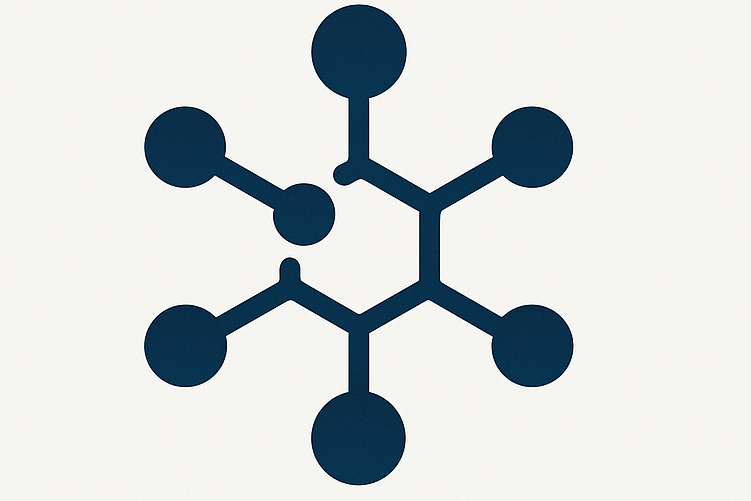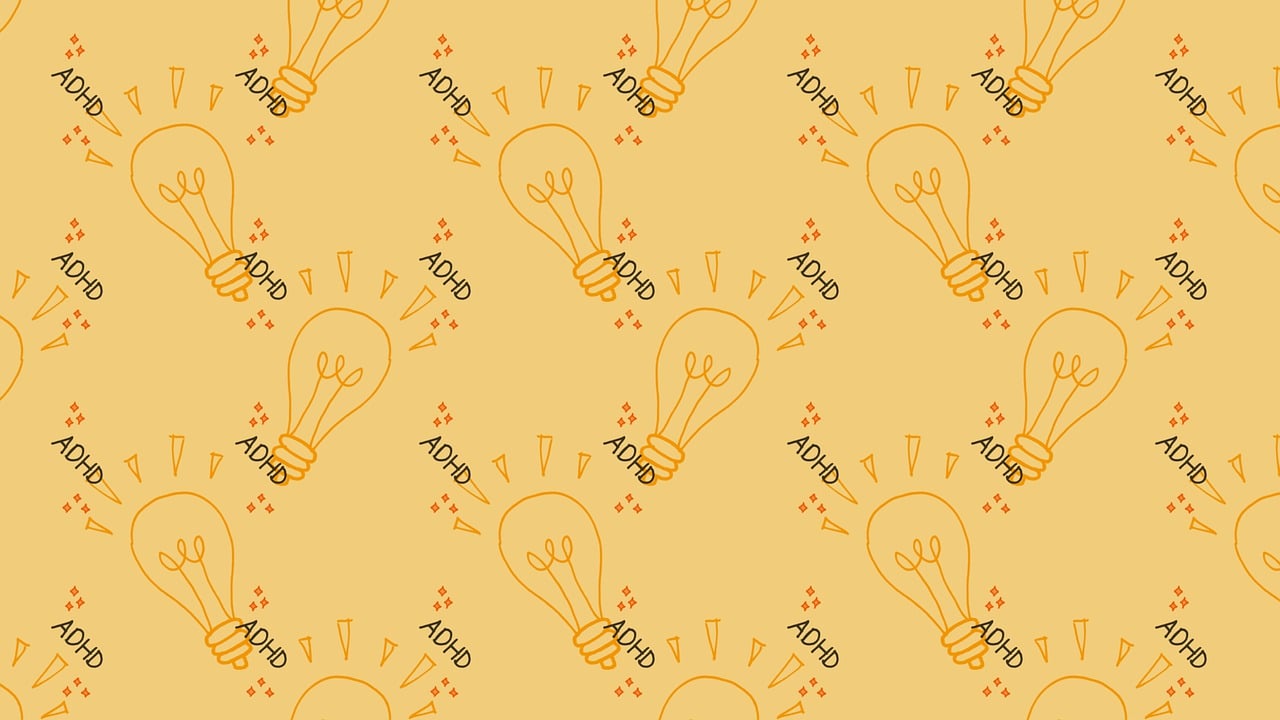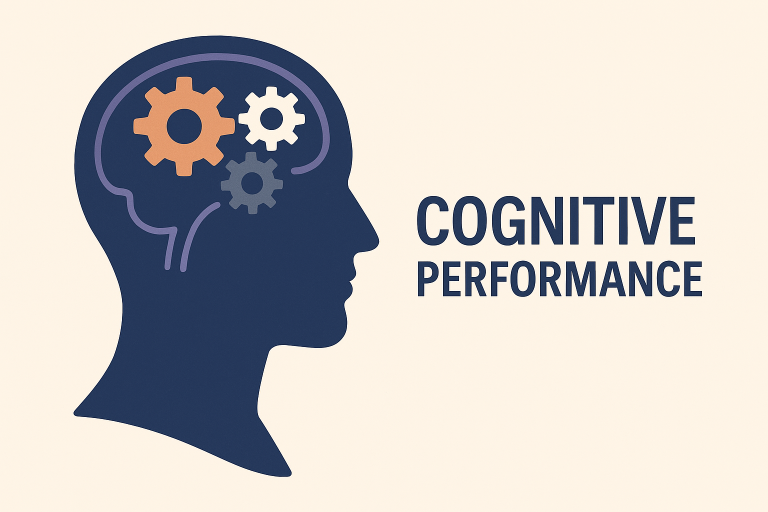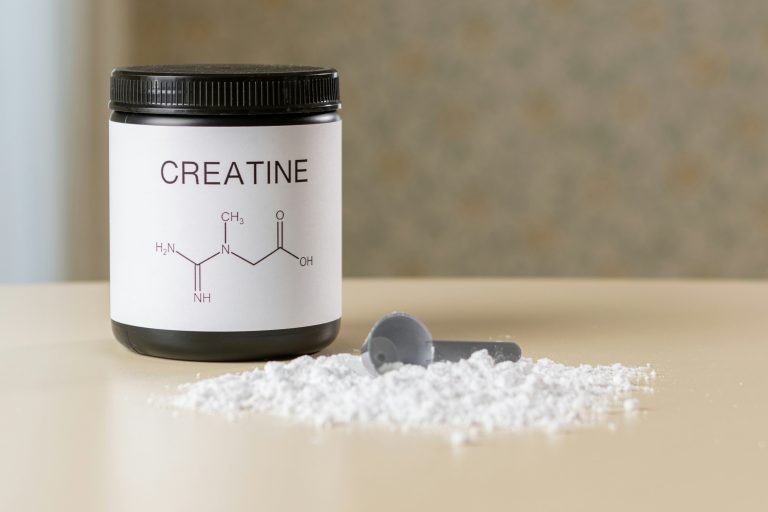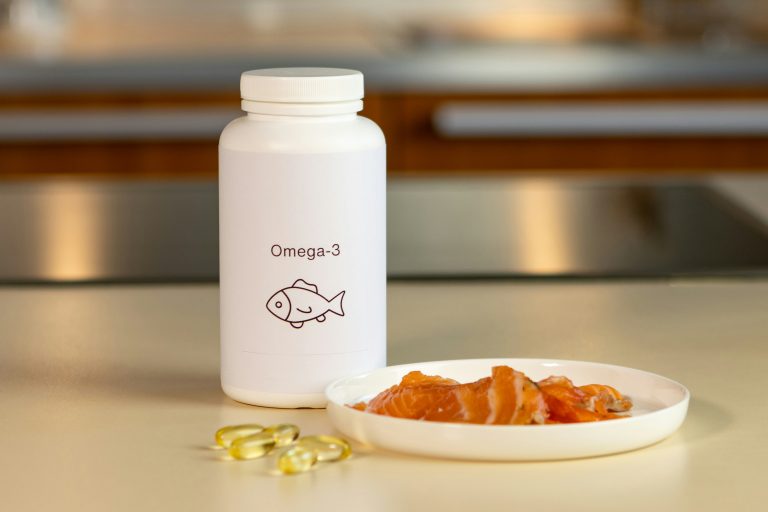ADHD Nootropics: What Works and What to Avoid
ADHD can make it hard for people to focus, remember things, and manage daily tasks. Some are looking to nootropics, also called “smart drugs,” to help with these symptoms and support cognitive performance.
Nootropics include both natural supplements and certain prescription medicines that may help with attention and memory in people with ADHD.
Current research shows that some nootropics may help manage ADHD symptoms by improving focus and thinking ability. For example, options like modafinil, L-tyrosine, Ginkgo Biloba, and Bacopa Monnieri are often discussed for their possible benefits.
Learn more about their uses and effectiveness for ADHD in this article on cognitive enhancers for ADHD.
Understanding which nootropics actually help with ADHD, and if they are safe to use, matters for anyone seeking better brain function. This article explores the most talked-about choices and what the latest studies say about their effects on attention and cognitive skills.
Understanding ADHD and Cognitive Function

Attention deficit hyperactivity disorder (ADHD) impacts brain function in several areas. This includes concentration, mental health, and the brain’s ability to focus.
What Is ADHD
ADHD is a common mental health condition that affects children and adults. The main features are problems with attention, hyperactivity, and impulsiveness.
People with ADHD often find it hard to stay on task, organize activities, or sit still for long periods. There are three main types of ADHD:
- Predominantly inattentive type: Main symptoms are trouble paying attention.
- Predominantly hyperactive-impulsive type: More focus on movement and impulsive behavior.
- Combined type: A mix of both inattention and hyperactivity.
This disorder can appear early in life and usually continues into adulthood. It may affect school, work, and everyday activities.
How ADHD Affects Cognitive Performance
ADHD can make tasks that require ongoing attention or planning much harder. People with the disorder often experience poor concentration, even when they want to focus.
This can lead to missing important details or making careless mistakes. Other types of cognitive function are also affected, such as working memory, problem-solving, and organizing information.
This means that daily routines or jobs that need strong focus can be more challenging. Some may feel mentally restless or easily bored.
Experts have connected ADHD to changes in certain brain regions. These areas help control focus, impulses, and decision-making.
Over time, untreated ADHD may also increase the risk of other mental health problems, such as anxiety or depression and even make cognitive decline more likely later in life.
Nootropics Overview
Nootropics are substances used to improve mental function, focus, and memory. They impact brain chemistry in different ways and can be natural or synthetic, with some types being prescription-only.
What Are Nootropics
Nootropics, often called cognitive enhancers or smart drugs, include a wide group of compounds meant to support cognitive enhancement. They can make it easier to concentrate, remember information, or stay alert.
Some nootropics are natural, like certain herbs, while others are made in labs. There are two main types:
- Prescription nootropics: These include stimulants, such as those used to treat ADHD, that can have strong effects on focus and attention.
- Non-prescription nootropics: These are found in supplements or over-the-counter products, but their benefits may be less proven.
Nootropics can offer some cognitive benefits for those with attention or memory challenges. But they may work differently for everyone and sometimes come with side effects.
You can read more in this Healthline article on nootropics for ADHD.
How Nootropics Work in the Brain
Nootropics influence the way the brain uses chemicals called neurotransmitters. These are the messengers that help nerve cells communicate, affecting mood, attention, and memory.
Changes to neurotransmitter levels can improve attention, sharpen mental function, or help regulate mood. Some nootropics boost blood flow to the brain or change how brain cells use energy.
Others change specific brain pathways that control memory and focus. Prescription stimulants often work by increasing dopamine, a neurotransmitter linked to reward and motivation, which helps people with ADHD focus better.
The effects on brain health and brain chemistry depend on the type and dose. More details about the science are available from WebMD’s overview of smart drugs.
The Role of Nootropics in ADHD Management
Nootropics are substances that may help some people with ADHD improve their mental focus, memory support, and mental clarity. They are sometimes used alongside or instead of traditional treatments to support brain function and reduce symptoms like brain fog.
Cognitive Benefits for ADHD
Nootropics, often called “smart drugs,” are a group of substances that can help with thinking and learning. Some, like prescription ADHD medications, increase levels of dopamine and norepinephrine in parts of the brain related to focus and attention.
This can improve a person’s ability to concentrate and remember information. Certain nootropics are linked to better mental energy and alertness.
They may also lead to quicker reaction times and better control of impulses. These effects can be important for those who struggle with mental stamina or feel mentally tired often.
Common cognitive benefits seen with nootropics include:
- Increased mental focus
- Sharper memory
- Reduced brain fog
Prescription nootropics are often more effective and studied than non-prescription options. They should only be used under a doctor’s guidance.
Nootropics and Symptoms of ADHD
People with ADHD often feel easily distracted and have trouble staying on task. Nootropics may help reduce these problems by supporting mental clarity and boosting attention span.
This can make it easier for people with ADHD to organize their work and complete daily activities. Some prescription medicines used for ADHD are nootropics because they target areas of the brain that control attention and behavior.
Evidence shows these medicines can help improve working memory, response inhibition, and reaction time variability, which are common difficulties in ADHD. Learn more about how these drugs work in ADHD at Hudson Mind.
While many people find benefit, not all nootropics work the same way, and some may not help every symptom. Over-the-counter options are less studied for ADHD, so their effects can be less predictable.
More research continues on both prescription and non-prescription nootropics for ADHD symptoms. For more details, see Healthline’s overview.
Types of Nootropics for ADHD
ADHD nootropics can be divided into three main types. Each type works in a different way and offers unique benefits, from boosting focus to helping memory.
Natural Nootropics
Natural nootropics include herbal extracts and plant-based ingredients. Some popular choices are ginkgo biloba, bacopa monnieri, and panax ginseng.
These brain nutrients may help improve attention and memory. Many people look for natural alternatives because they want options with fewer side effects.
Natural nootropics often come from foods, teas, or supplements. Caffeine is one of the most common and is found in coffee, tea, and some over-the-counter products.
Other examples include L-theanine, which is sourced from green tea and is said to help with calmness and focus. These ingredients are usually easy to find and may be combined in supplements designed for brain health.
Some users feel natural nootropics are safer than synthetic options, but results vary for each person. More research is needed about how well these ingredients work for ADHD.
For more details and options, see the list of common natural nootropics for ADHD.
Synthetic Nootropics
Synthetic nootropics are lab-made compounds often called “smart drugs” or cognitive enhancers. Some prescription medications for ADHD, like methylphenidate and amphetamine-based stimulants, fall into this group.
These medicines usually improve focus, alertness, and impulse control. Other non-prescription synthetic nootropics include piracetam, meclofenoxate, and nicergoline.
These substances are not always approved for ADHD, but some people use them to help with attention or memory problems. Synthetic nootropics can be more potent than natural options but may come with bigger risks or side effects.
It is important to speak with a doctor before trying these, especially for children or teens. To read a breakdown of different synthetic nootropics, visit this overview of popular synthetic cognitive enhancers.
Amino Acids and Vitamins
Amino acids and vitamins support brain health and sometimes help with ADHD symptoms. Acetyl L-carnitine, an amino acid, may help with memory and thinking skills.
Tyrosine is another amino acid the brain uses to make dopamine, which can affect focus. Key vitamins like vitamin B12 and minerals such as zinc and magnesium also play a role in brain function.
Deficiencies in these nutrients might worsen attention or mood problems. Many ADHD supplements include a mix of amino acids and vitamins for overall health.
These nutrients are often available in diet or as over-the-counter supplements. For more on these options, see the benefits of common nootropics and brain nutrients for ADHD.
Popular Nootropic Compounds for ADHD Support
Some nootropics may help with focus, attention, and stress. Each compound offers unique benefits for mental performance and emotional balance.
L-Theanine and Caffeine
L-theanine is a natural amino acid found in tea, known for its calming effects. Combined with caffeine, it can create a balanced boost in alertness without causing jitters.
This blend often supports what is called “calm alertness”—a state of being focused but relaxed. Several studies suggest that this pairing may improve attention and cognitive function, especially in people with ADHD.
While caffeine alone may cause anxiety or overstimulation, l-theanine can reduce these side effects. Many students and adults use this combo to stay sharp during long tasks or classes.
Most supplements provide a ratio of about 2:1, with l-theanine at 200 mg and caffeine at 100 mg, though doses may vary. The stack’s effects are usually felt within an hour and last a few hours.
Bacopa Monnieri and Lion’s Mane
Bacopa monnieri is a plant used in traditional medicine to support memory and learning. It may help people who struggle with forgetting things, which is common in ADHD.
Research suggests that bacopa can improve attention, processing speed, and working memory after several weeks of use.
Lion’s mane is a fungus known for its nerve-supporting properties. It may help with cognitive function and mental clarity.
Some studies show lion’s mane could protect brain cells and promote nerve growth factor, supporting brain health. These natural nootropics are common in supplements for cognitive support.
Effects build up over weeks, and they are often taken together in daily capsules for best results. Their side effects are usually mild.
Rhodiola Rosea and Ashwagandha
Rhodiola rosea is an adaptogenic herb used to help the body manage stress. People use it to support mood, reduce fatigue, and boost mental performance.
Some find it useful for staying focused during stressful or tiring days. Ashwagandha is another herb known for its stress- and anxiety-relieving effects.
It may lower cortisol, the body’s main stress hormone. For people with ADHD, lowering anxiety and stress can sometimes help with restlessness and improve attention span.
A table of key benefits:
| Compound | Main Benefit | Noted For |
|---|---|---|
| Rhodiola rosea | Stress and fatigue support | Adaptogen, energy |
| Ashwagandha | Stress relief, anxiety | Calmness, mood balance |
Both herbs are typically taken as capsules or teas. They are often paired in regimens to support both mental performance and emotional resilience.
Their calming effects may help cushion the highs and lows common in ADHD.
For more on these and other options, visit this guide to cognitive enhancers for ADHD.
Prescription Medications and Stimulant Nootropics
Prescription nootropics for ADHD often include stimulant and non-stimulant medications. Many are FDA-approved and may help improve attention and impulse control, but each comes with its own benefits and risks.
Modafinil and Adderall
Modafinil is a prescription drug originally developed for narcolepsy and sleep disorders. It acts as a wakefulness-promoting agent and is sometimes used off-label for ADHD.
Modafinil is considered a strong nootropic and works by influencing neurotransmitters in the brain. Adderall is a stimulant medication approved by the FDA for treating ADHD.
It contains amphetamine salts that increase dopamine and norepinephrine levels, which may lead to better focus and control over impulsivity. Adderall is effective for many people but carries potential risks, including addiction, elevated heart rate, and insomnia.
Both drugs are only available with a doctor’s prescription. Patients should be aware of the possible side effects and the importance of medical supervision while using these medications.
Not everyone responds the same way to stimulant nootropics, and the risk for dependence can vary.
| Medication | FDA Approved for ADHD | Main Use | Potential Risks |
|---|---|---|---|
| Modafinil | No | Narcolepsy, ADHD* | Dependence, anxiety |
| Adderall | Yes | ADHD | Addiction, insomnia |
*Off-label use for ADHD.
Piracetam and Cognitive Enhancement
Piracetam is one of the oldest synthetic nootropics and is commonly used for cognitive enhancement. Unlike many other prescription nootropics, Piracetam is not FDA-approved in the United States for any condition, including ADHD.
It is thought to work by affecting neurotransmitter function and neuroplasticity in the brain. Some users believe Piracetam may help with memory and mental performance, but research evidence is mixed, especially for those with ADHD.
The drug is generally not considered addictive, but its safety profile is not well established for children or long-term use. Piracetam does not have stimulant effects like Adderall or Modafinil, and it is not prescribed as an ADHD treatment in the U.S.
People interested in cognitive enhancement with this drug should exercise caution and consult a healthcare professional before use. More information about nootropics and cognitive enhancers for ADHD is available on the Mental Health Center website.
Safety, Efficacy, and Regulation
Nootropics for ADHD can work well for some people when prescribed, but there are important safety and legal issues to consider. Some forms are regulated as prescription medications, while others are sold as dietary supplements with much less oversight.
Potential Risks and Side Effects
Prescription nootropics, such as stimulants for ADHD, can cause side effects. These include trouble sleeping, loss of appetite, headaches, and nervousness.
In rare cases, some users may develop heart problems or increased blood pressure. There is also a risk of addiction with certain ADHD medications, especially if they are not taken as directed.
Mental health may be affected, as some people can feel more anxious or even depressed while using these drugs. When it comes to over-the-counter nootropics and dietary supplements, people may assume they are safe.
However, the quality and strength of these supplements can vary widely. They may interact with other medicines, and not all potential long-term effects are known.
There is less scientific evidence on how well most supplements work for ADHD. For more details on ADHD medication side effects and supplement risks, see this guide on nootropics safety and risks.
Regulatory Considerations
The FDA regulates prescription ADHD drugs, ensuring they meet strict standards for safety and effectiveness. Medications like amphetamines and methylphenidate are only available with a prescription, and their use is closely monitored by healthcare providers.
In contrast, nootropics sold as dietary supplements are not approved by the FDA in the same way. Companies do not have to prove their product works or is safe before selling it.
Labels and claims may not always be accurate. This means people need to be careful about what they choose.
Buying supplements from reputable brands can help, but even then, risks remain. Unapproved products may include hidden or harmful ingredients.
For more on how nootropics are regulated, review this overview of smart drugs and regulation.
Lifestyle and Supplementation Strategies
Managing ADHD symptoms often involves making daily choices about food and supplements. Focusing on nutrient intake and smart use of nootropic supplements can support mental energy and productivity.
Diet and Brain Health
A balanced diet provides important brain nutrients like protein, healthy fats, and complex carbohydrates. Essential minerals such as iron and zinc play a role in nerve function and focus.
Studies show that iron and zinc supplementation may help reduce symptoms in children with ADHD, especially if they have low levels of these minerals. For more information, see recent findings on nutritional supplements for ADHD.
Key nutrients for brain health:
- Protein (eggs, lean meats, beans)
- Omega-3 fatty acids (fish, walnuts, flaxseed)
- Iron and zinc (red meat, spinach, pumpkin seeds)
- Magnesium and B vitamins
Consistent meals and snacks can help manage blood sugar, which may reduce irritability or trouble concentrating. Avoiding added sugars and highly processed foods is recommended for improved mental energy.
Stacking Nootropics for ADHD
Nootropic supplements are sometimes used alongside prescription medicine or lifestyle changes. Some popular nootropic brands promoted for ADHD support include Protein Works Endless Nootropic, Vyvamind, and Nooceptin.
Each blend may include ingredients thought to improve focus, alertness, or memory. Common ingredients in nootropics:
- Caffeine and L-theanine (for balanced alertness)
- Bacopa monnieri (supports memory)
- Citicoline or Alpha-GPC (choline sources for mental clarity)
- Zinc, magnesium, and B vitamins (support energy metabolism)
Some people “stack” several nootropics to target different symptoms. For best results, a doctor should guide any changes, since supplements can interact with other medications.
Read more about nootropics for ADHD symptoms.
Optimizing Cognitive Performance and Well-Being
Managing ADHD symptoms is not just about taking nootropics. It’s also important to focus on mental health, balance daily demands, and use habits and tools that support attention and mental clarity.
Balancing Cognitive Demand and Mental Health
Those with ADHD often face high cognitive demand at school, work, or home. This constant strain can lead to stress and lower well-being.
Finding ways to manage this is important. Taking regular breaks can reduce mental fatigue and help the brain reset.
Sleep is key, as poor rest lessens focus and memory. People should also decide which tasks are most important.
Prioritizing helps avoid feeling overwhelmed. Using relaxation methods—like deep breathing or short walks—can lower anxiety and boost clarity.
If nootropics are used, it’s wise to watch for any side effects or mood changes. Mental health support, like therapy or counseling, can work together with other efforts to build emotional strength.
Tips for Enhancing Focus and Productivity
A few practical habits can make a difference with focus and productivity. Keeping a simple to-do list helps organize thoughts and set clear goals for the day.
Distractions should be minimized. This can include turning off notifications, using noise-canceling headphones, or working in a quiet space.
Staying hydrated and eating balanced meals—such as those with lean protein and whole grains—can help the brain work better.
Many find time management methods, like the Pomodoro Technique (working in short intervals with breaks), helpful for staying on task.
Some supplements, such as ginseng, may also support attention and memory, but their effects are usually mild and should be considered carefully, as explained by the Mental Health Center’s review of cognitive enhancers for ADHD.
Tracking progress with simple charts or journals motivates many people. This helps them see what works best for their mind and well-being.
